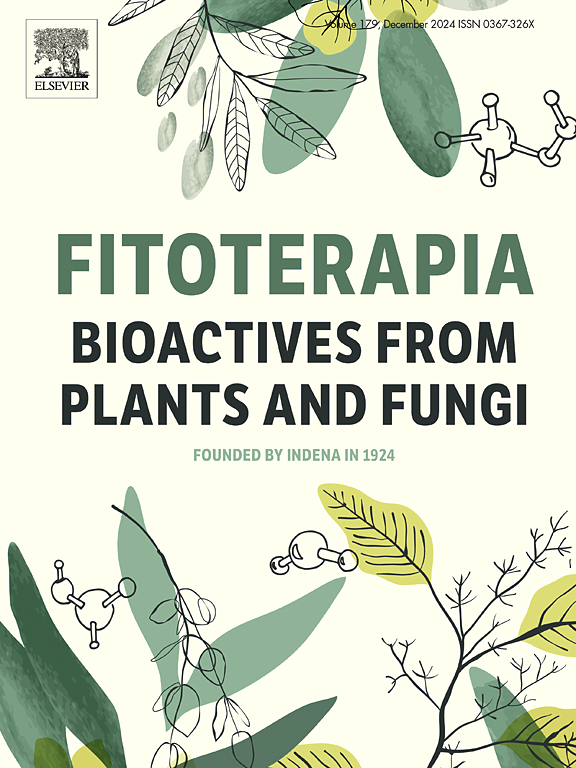Modified Shi Hui San decoction ameliorates murine experimental colitis through multiple mechanisms
IF 2.5
3区 医学
Q3 CHEMISTRY, MEDICINAL
引用次数: 0
Abstract
Background
Modified Shi Hui San (MSHS) has shown excellent therapeutic effects on ulcerative colitis (UC) patients clinically in China. However, the exact mechanism underlying its effect remains unclear and needs to further investigation.
Aims
This study aimed to investigate the therapeutic effects of modified Shi Hui San decoction (MSHSD) in murine experimental colitis and explore its underlying mechanisms.
Methods
To examine the effects of MSHSD on UC, a murine model of colitis was induced using 2.5 % dextran sodium sulfate (DSS). The mice were then treated with MSHSD at the doses of 6.25 or 25 g/kg for 10 days. The progression of colitis was evaluated through clinical symptoms, histopathological analysis, evaluation of mucosal barrier integrity, biochemical assays, and analysis of the gut microbiota composition.
Results
MSHSD administration markedly ameliorated experimental colitis in DSS-treated mice by suppressing inflammation, restoring the intestinal mucus barrier, alleviating oxidative stress, and reestablishing immunity. More importantly, it transformed the gut microbiota structure from an imbalanced state to a normal state.
Conclusions
These findings for the first time extend our understanding of the mechanisms, by which MSHSD ameliorates murine experimental colitis, and support the clinical use of MSHS for UC treatment.

求助全文
约1分钟内获得全文
求助全文
来源期刊

Fitoterapia
医学-药学
CiteScore
5.80
自引率
2.90%
发文量
198
审稿时长
1.5 months
期刊介绍:
Fitoterapia is a Journal dedicated to medicinal plants and to bioactive natural products of plant origin. It publishes original contributions in seven major areas:
1. Characterization of active ingredients of medicinal plants
2. Development of standardization method for bioactive plant extracts and natural products
3. Identification of bioactivity in plant extracts
4. Identification of targets and mechanism of activity of plant extracts
5. Production and genomic characterization of medicinal plants biomass
6. Chemistry and biochemistry of bioactive natural products of plant origin
7. Critical reviews of the historical, clinical and legal status of medicinal plants, and accounts on topical issues.
 求助内容:
求助内容: 应助结果提醒方式:
应助结果提醒方式:


